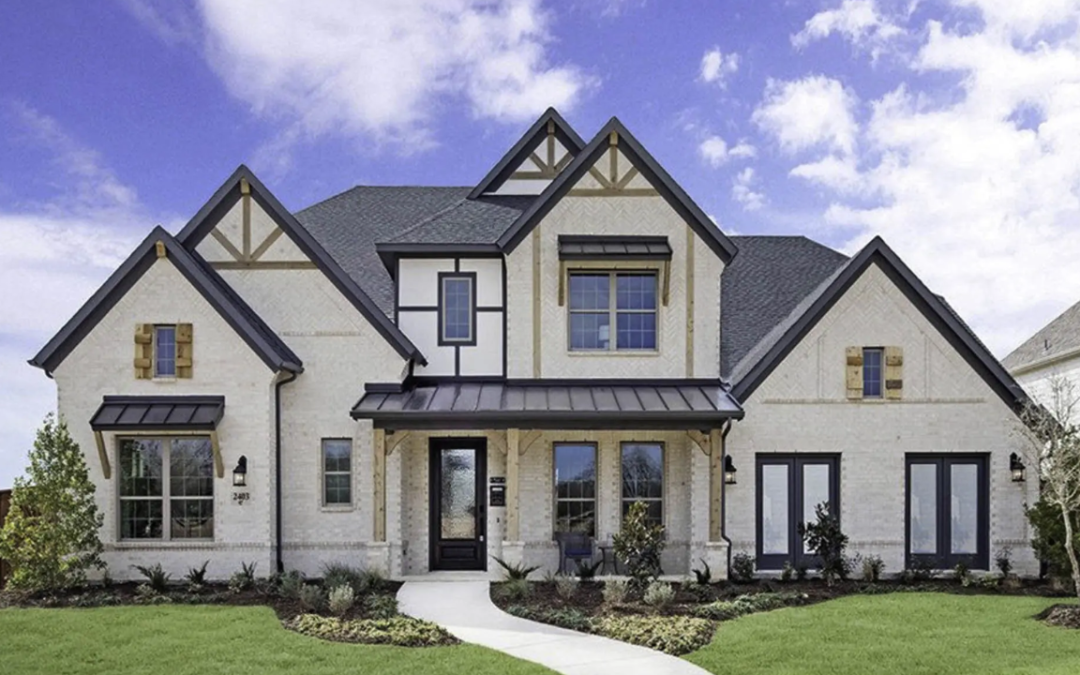Buying or building a home is probably one of the biggest investments everyone will make in their lifetime. For new homes, choosing the right home builder in Texas is very important, especially in the housing market, which is booming. Regardless of whether you are looking for a cheap home builder and construction or a quality luxury home builder, these are some of the factors you need to consider. Since there are many home builders to choose from, it is important to establish what factors should be considered when looking for the top home builders in Texas. This guide will help make this decision much easier so that you can make the right one.
10 Key Factors to Consider When Choosing a Texas Home Builder
Given that Texas presents countless different opportunities for residents, finding the right home builder is important. Here are 10 key factors to consider when choosing a Texas home builder:
1. Research Home Builder Rankings by Quality
If you are just starting your search, it will be helpful to consider home builder rankings by quality. Current builders are ranked according to reviews, construction quality, and functionality by multiple organizations, websites, and clients. These rankings offer only the best products and can be a great resource for learning about Texas’s home construction companies.
Visit a website with home builder reviews and ratings to get the best results. It is important to pay attention to some specific aspects such as construction techniques, materials, and even the experience clients or customers get in the construction process. If you can focus on rankings, there will only be a few builders in your area who are renowned for their best work.
2. Check for Credentials and Licenses
A well-established home builder should be in a position to produce relevant documents such as licenses and certifications. Currently, in Texas, it is mandatory by law for any builder to produce state licenses for contractors. You can look up their information at the Texas Department of Licensing and Regulation if you wish.
Also, find out if the builder is affiliated with recognized professional bodies in the state or country, such as the Texas Association of Builders or the National Association of Home Builders. Being affiliated with these organizations shows concern for quality delivery and professionalism and can provide an additional measure of guarantee of the builder’s quality.
3. Look for Experience and Specialization
It makes more sense to choose a home-building company that has been in the business for many years. Builders who have been in the industry for many years should be preferred, as they would have gone through some rigorous processes as well as vetted suppliers and subcontractors. Experienced builders can also better handle certain events that may delay the completion of the work.
Also, it is good to assess whether the builder offers a specific type of home. Some builders will focus on building luxury homes, while others are more inclined towards building basic homes. Therefore, while choosing a builder, he should take the time to understand your needs as a client.
4. Review Portfolios and Previous Projects
Looking at their portfolio gives information about the builder’s work and habits. Any reliable home-building company should have a photo collection of finished projects on the home page of their website. If you take some time to review the previous homes they have built, it will help to ensure that the design aesthetics appeal to you. See if they have incorporated variety in their projects.
Some builders have worked in different styles and layouts and hence they may understand your unique concern better. If you can visit some of their completed homes, I am sure you will see that they have a very unique style. Such an approach will familiarize you with the quality of the material and work done.
5. Read Customer Reviews and Testimonials
As long as the builder is reputable, it is always effective to rely on customer reviews and feedback. Google, Yelp, social media platforms, and any other platform on which the business is listed. Identify the positive and negative aspects of the reviews and try to see what they have in common. Pay attention to comments related to communication, construction management, and builder feedback.
Also, request the builder to connect you with previous clients he has worked with. One you can directly ask his former clients to get clarification on certain matters. It is not inappropriate to ask specific questions about experience, such as whether the project was completed on time and within the stipulated amount.
6. Evaluate Warranty and Post-Construction Support
A good home builder should offer a warranty first because of their importance. In addition to safeguarding your investment, the warranty guarantees the builder’s work. Know what is included in the warranty concerning the building structures, floors, walls, ceilings, plumbing, and electrical systems.
It also includes post-construction support, as construction projects do not end after the structures are built. Ask more about the procedures for dealing with any problems that occur after moving into the house. Any concerns or repairs should be done within the home warranty period and a reputable builder should have a defined way of dealing with such issues.
7. Discuss Pricing and Payment Plans
The price range is also important, as it is for most consumers when purchasing their homes. The next factor of consideration is the cost of building the house and the methods adopted by the builder company while charging its fees. To be cost-efficient, always request more specific bids from different contractors.
Stay away from builders who quote comparatively lower prices for the same construction, which could also mean that the quality of the materials used is poor. Provide details of what they include in the price in regards to parts like upgrades, warranties, and finishes, as the client can benefit from the additional charges later.
8. Communication and Customer Service
The home-building process requires communication. As always in this consultation, you should be comfortable talking over your ideas and concerns with the builder.
From the moment you meet the builder, pay attention to the level of interaction with you. Are they responsive to your questions? Do they provide clear explanations? In addition to improving the quality of the project you receive overall, excellent customer service will also facilitate the construction process.
9. Understand the Construction Process
It is important to find out how the builder works before hiring him so that you do not have to deal with a lot of construction surprises. Any qualified professional builder should be able to sit down with you and explain the timelines, main activities, and what you are likely to encounter during the construction.
It is important to find out about their particular project management strategy. Will you have an account manager at each stage? How often do they send updates? It is hoped that the following understanding of the above aspects will make you feel more comfortable and secure during the construction of your home.
10. Trust Your Instincts
Finally, trust your instincts. It is possible to draw certain conclusions by considering the knowledge gained from looking into potential building sites, speaking with builders, and examining the finished products of their labor. You should be able to feel the builder’s approach, attitude, and willingness to meet your needs.
Make sure to select a contractor you are most comfortable with to ensure your success in the project. Building a home is an important process and if you have a builder who completely understands your needs and is on the same wavelength with you, it can be quite fun.
Conclusion
Finding the top home builders in Texas is not an easy task that needs to be done very carefully. In this way, it is possible to rank based on quality, checking credentials, viewing portfolios, and looking at customer testimonials when selecting a home builder. When choosing between affordable home builders and luxury home builders, the right choice will lead you to the road to success in building your home.
At Christopher Custom Homes, we understand that building your dream home is a significant milestone. We believe that quality workmanship, professionalism, a strong customer relationship, and the quest for passion to achieve your unique dream are what sets us apart. Please let us assist you in starting the journey to building a home for you and your family that you desire and love.
FAQs About Home Builders in Texas
What should you look for in custom home builders?
When selecting custom home builders, there are a few factors that can be considered, including reputation, experience, how the builders communicate, and the flexibility they have in the types of customizations. They should also be licensed and this should be verified.
How do you find good-quality custom home builders?
Research online reviews, visit completed projects, and ask for referrals from friends or family. Checking builder rankings by quality can also provide insights into their performance.
What is the average timeline for building a custom home?
On average, building a custom home can take anywhere from six months to over a year, depending on the complexity of the project and the builder’s schedule.
How much does it typically cost to build a custom home in Texas?
Costs can vary widely based on location, size, and materials. On average, you might expect to spend between $150 and $300 per square foot.
What financing options are available for building a home?
Many builders offer financing options through partnerships with lenders, or you can explore traditional loans, construction loans, or even FHA loans for building a new home.
Are there any warranties on newly built homes?
Most reputable builders provide warranties covering structural defects and other issues for a specified period, typically ranging from one to ten years.
What are the most common mistakes people make when choosing a builder?
Common mistakes include not doing enough research, failing to check references, overlooking contract details, and not communicating clearly about expectations and budget.

